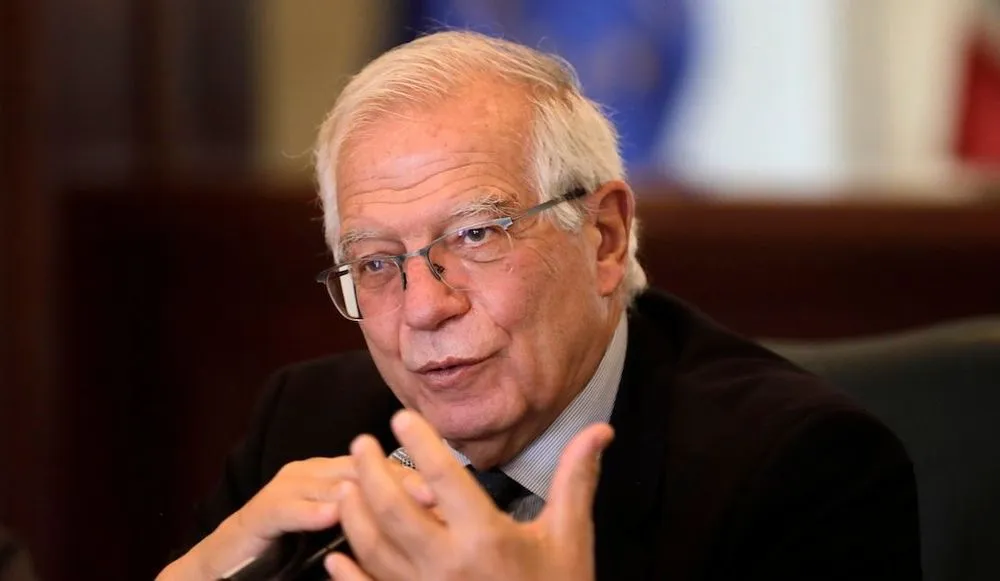EU condemns Russia after detecting ‘increasing number’ of hybrid activities
The European Union issued a condemnation of Russia on Tuesday over the Kremlin’s “intensifying campaign of hybrid activities” targeting the bloc and its partners.
It comes in the wake of numerous reported sabotage attempts targeting EU entities, particularly those involved in manufacturing weapons intended to support Ukraine, as well as attempts to influence democratic elections across the continent.
Security agencies and governments across Europe are increasingly warning about the threat posed by Russia-directed saboteurs operating on their territories, although these are often conducted by non-Russian nationals to provide the Kremlin with deniability.
Tuesday’s condemnation was made as the European Council established new rules for imposing sanctions against the Russian entities behind these activities. These rules allow the European Council to ban designated individuals from entering EU territories, to freeze any assets held in those territories, and forbids EU citizens and organizations from making any funds available to them.
In his statement, the European Council’s high representative, Josep Borell Fontelles, said the bloc had “detected an increasing number of a broad range of activities” intended to “divide … destabilize and weaken the EU.”
Borell — who issued another very similar condemnation earlier this year — said these activities have included cyberattacks, information and influence campaigns, as well as “cases of arson, vandalism and sabotage, including against our critical infrastructure.”
Russia was also accused of instrumentalising migrants to disrupt the bloc, as well as disrupting satellite communications, violating European airspace, and attempting to “conduct physical attacks against individuals on the territory of the EU.”
It remains to be seen how effective the EU’s response will be. Despite the intentions of its sanctions regime, questions have been raised about the EU’s capability to effectively attribute and respond to hostile foreign activities, particularly its failure to coordinate measures with those taken by partners such as the United States and United Kingdom.
Earlier this year, the European Council blamed a “clerical error” after identifying the wrong Russian intelligence agency in a formal sanctions notice over a series of cyberattacks targeting member states alongside Ukraine. The mistake highlighted several discrepancies between the EU’s approach and that of the Five Eyes intelligence alliance.
According to Borell, alongside the aim of weakening the EU as a whole, the “broad coordinated hybrid campaign directed by Russia” is also intended to undermine the bloc and its member states’ support for Ukraine.
“This will not succeed,” said Borell. “We will act united and determined to address these activities and hold perpetrators accountable. Our support to Ukraine will remain solid and unwavering for as long as it takes.”
Similar concerns about Russian hybrid activity have been raised by the North Atlantic Council, NATO’s political executive, which said earlier this year that the alliance was “deeply concerned about recent malign activities on Allied territory, including those resulting in the investigation and charging of multiple individuals in connection with hostile state activity.”
NATO subsequently announced it would adopt a range of measures to address hostile Russian activities including sabotage and spying, most of which seem modeled on the British response to Russian intelligence operations.
Alexander Martin
is the UK Editor for Recorded Future News. He was previously a technology reporter for Sky News and a fellow at the European Cyber Conflict Research Initiative, now Virtual Routes. He can be reached securely using Signal on: AlexanderMartin.79



